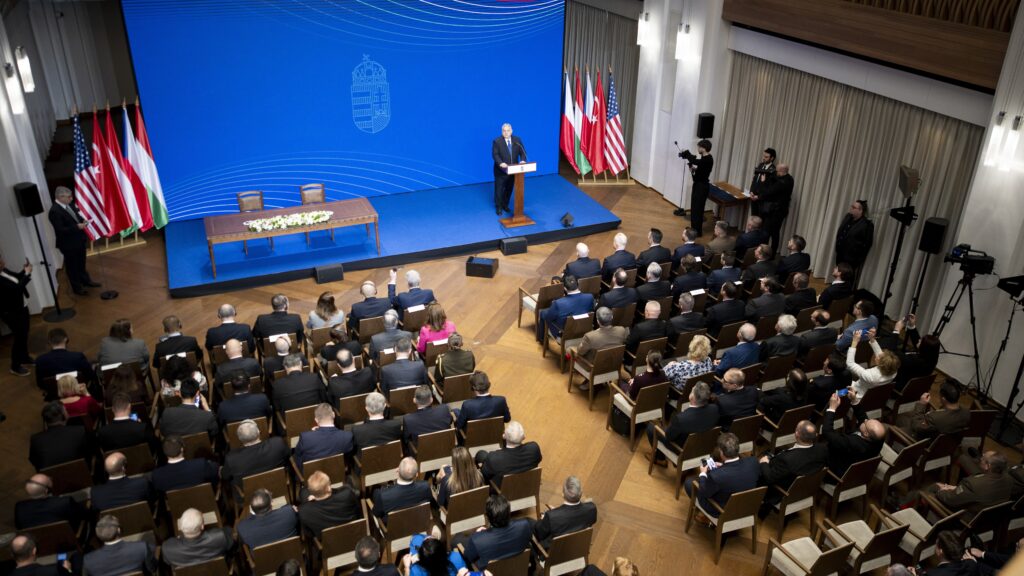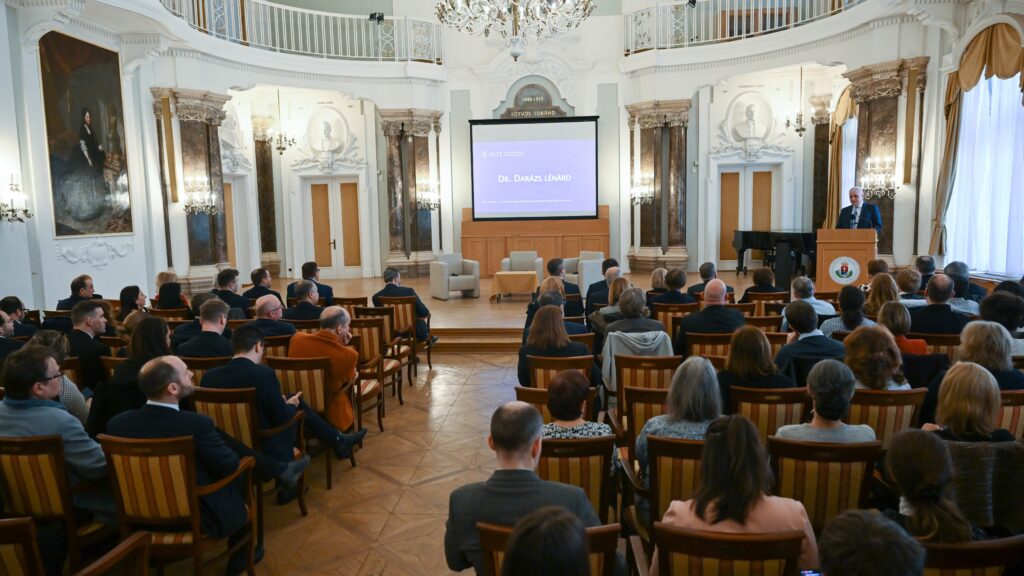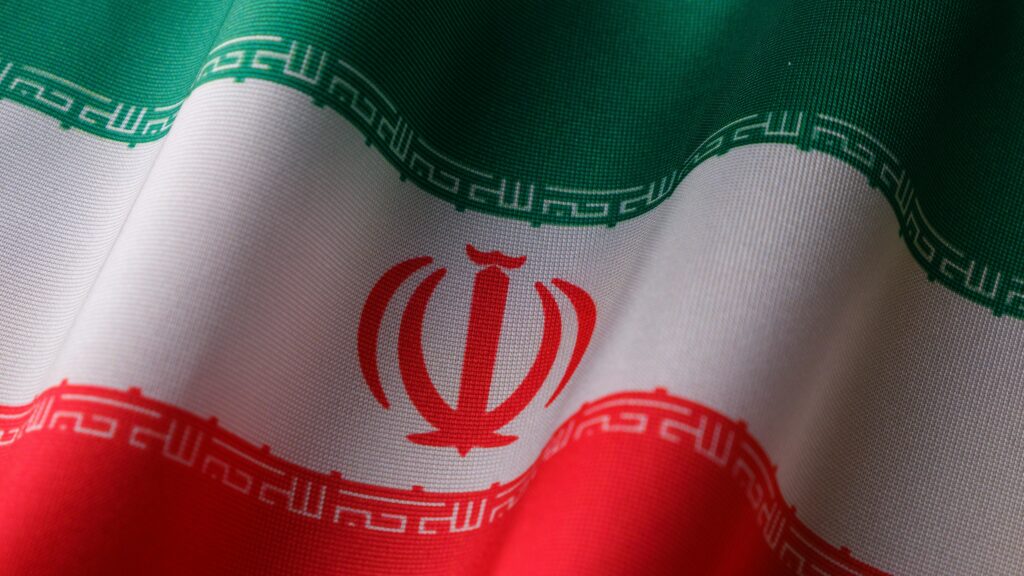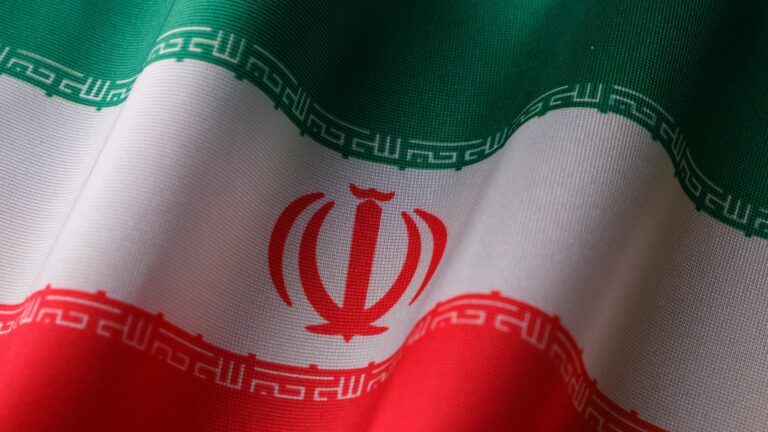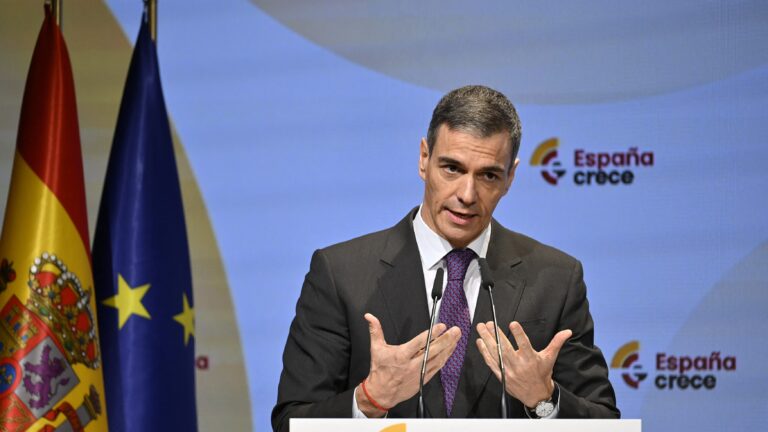‘After the jaws drop, people scratch their heads. And they say: You know? He’s right.’
As he seemed to struggle to keep his own jaw from dropping, Israeli Prime Minister Benjamin Netanyahu spoke the above words in reference to President Trump’s declaration at a joint press conference in early February, in which the US President declared that he would ‘take over’ the Gaza Strip, facilitate the relocation of most Gazan civilians to temporary housing outside of Gaza, and build the ‘Riviera of the Middle East’.
Immediately, Trump’s statement sparked hand-wringing and outrage from predictable corners worldwide. Yet, Trump’s statement has already borne its first intended fruits, as it spurred Arab nations to develop their own plans to counter his proposal.
Central to Trump’s vision for Gaza, and the broader Israeli–Palestinian conflict, is that we cannot go back to past ways of thinking and acting that have repeatedly failed. The US President emphasized: ‘Do a real job. Do something different. Just can’t go back. If you go back, it’s going to end up the same way it has for 100 years.’
Several times in this press conference, Trump referenced past failures and the insanity of going down the same well-trodden roads of conflict, ceasefires and endless negotiations in third-party countries. ‘You just can’t keep doing—you have to learn from history—you can’t keep doing the same mistake over and over again,’ reaffirmed the President.
Instead, he offered to the world a vision for Gaza that would not be limited to Palestinians, but instead represent an opportunity for the broader international community: ‘Palestinians will live there, many people will live there. But they’ve tried the other, and they’ve tried it for decades and decades and decades. It’s not going to work. It didn’t work. It will never work. And you have to learn from history…you just can’t let it keep repeating itself.’
Moreover, Trump opened the possibility of widespread regional collaboration in rebuilding Gaza under his new plan, noting: ‘I really believe that many countries will soon be joining this amazing peace and economic development transaction. It really is a big economic development transaction. I think we’re going to have a lot of people signing up very quickly.’
‘I think we’re going to have a lot of people signing up very quickly’
This is hardly the first time that Trump has said something unconventional and shocking that serves to reset the ‘Overton window’ on a particular topic. Perhaps one of the most significant achievements of the first Trump administration, the Abraham Accords, was the fruit of Trump’s willingness to go boldly against conventional thinking.
During the same joint press conference, Netanyahu referenced the importance of Trump’s unconventional thinking and the groundbreaking example of the Abraham Accords: ‘Nothing happened for a quarter of a century. But in four months, we were able, working together under your leadership, to have four historic peace accords…This is the kind of thinking that enabled us to bring the Abraham Accords. This is the kind of thinking that will reshape the Middle East and bring peace.’
Trump’s vision for Gaza may not be desirable to many parties, but it certainly responds in spirit to the call of the Latin Patriarch of Jerusalem for truly new ideas: ‘Now you need something new, creative, I don’t know what, but all the previous agreements, ideas, the prospective two-state solution, everything is not realistic now.’ Whatever one might say about Trump’s vision for the ‘Riviera of the Middle East’, it was genuinely ‘new’ and ‘creative’.
Prior to the 2020 Abraham Accords, ‘conventional wisdom’ was that there could be no peace between Israel and other Arab countries without a prior and definitive resolution of the Israeli–Palestinian conflict. Then Secretary of State John Kerry best summed up such wisdom in a December 2016 statement, shortly before the beginning of Trump’s first term: ‘The Arab countries have made clear that they will not make peace with Israel without resolving the Israeli–Palestinian conflict. That’s not where their loyalties lie. That’s not where their politics are.’
Of course, during his first administration, Trump put the lie to the conventional wisdom, as in 2020, four Muslim-majority countries signed peace treaties with Israel in quick succession and committed to an overall ‘Abraham Accords’ framework. In the seven-page agreement between the United Arab Emirates (UAE) and Israel that inaugurated the Abraham Accords, there are only two vague mentions of the ‘Israeli–Palestinian conflict’, and the UAE signed the accords with a commitment ‘to working together to realize a negotiated solution to the Israeli–Palestinian conflict that meets the legitimate needs and aspirations of both peoples, and to advance comprehensive Middle East peace, stability and prosperity’.
Likewise, the peace treaty with Bahrain mentioned only briefly the generational conflict in the Holy Land, supporting ‘efforts to achieve a just, comprehensive and enduring resolution of the Israeli–Palestinian conflict’. In the accord with Morocco, the Moroccan representative ‘reiterated the coherent and unchanged position of the Kingdom of Morocco on the Palestinian question’, yet nonetheless ratified this agreement with no related strings attached.
Before the 7 October 2023 attacks, it seemed that the Kingdom of Saudi Arabia was poised to join the Abraham Accords, as it had already agreed to the India Middle East Corridor (IMEC) presented at that year’s G20—an idea that would necessarily involve more developed relations between Israel and Saudi Arabia. Although the 2023 Hamas attacks held up the prized normalization of relations between Israel and Saudi Arabia, it is abundantly clear that the ‘conventional wisdom’ of yore—that Arab states would not make peace with Israel without a definitive solution to the Israeli–Palestinian conflict—was mistaken.
Yet, ‘conventional wisdom’ dies hard. In the aftermath of the 7 October attacks, some commentators tried to blame these events not on Hamas and its enablers and apologists, but instead on President Trump and on the Abraham Accords. Recently, Democratic US Representative Alexandria Ocasio-Cortez stated that Hamas’ attacks were ‘absolutely’ a direct consequence of the Abraham Accords. Sarah Leah Wilson, executive director of Democracy for the Arab World Now (DAWN), wrote in 2023 for The Times that ‘the real premise of the Accords was proving that the Palestinian issue was no longer an obstacle for Israel´s relationships in the region’. She thoroughly rejected this premise and affirmed that the 7 October attacks were ‘proof’ of her prediction that this effort [the Abraham Accords] ‘was always bound to fail’.
‘In the aftermath of the 7 October attacks, some commentators tried to blame these events not on Hamas…but instead on President Trump’
It is not challenging to find other iterations of such renewed ‘conventional wisdom’, such as Mary Robinson’s pedantic statement that: ‘full normalization [between Israel and Arab countries] must be conditional on ending Israel’s occupation and realizing a Palestinian state, starting with an end to all illegal settlement-building and recognition of the State of Palestine along pre-1967 lines’. Such commentary roughly corresponds to the position of the Russian Federation, which has likewise announced that: ‘achieving real stability in the Middle East is impossible without settling the oldest regional problem, the Israeli–Palestinian conflict by establishing a Palestinian state in accordance with UN resolutions’.
In the aftermath of 7 October, ‘conventional wisdom’ about the Israeli–Palestinian conflict has reared its head again with renewed vim, asserting that it was always correct, and that the unprecedented attacks ‘prove’ such wisdom’s enduring validity.
It is worth, however, asking if the events of 7 October instead prove that ‘conventional wisdom’ about the regional conflict was and remains wrong-headed and counter-productive. It is at least equally, if not more, possible that the Abraham Accords were so successful that Hamas felt no choice but to undertake the attacks in order to bring their agenda and the broader ‘Palestinian cause’ back into the forefront of regional and international attention.
For example, trade between Abraham Accords countries rose from ‘practically nothing…to an estimated $10 billion over the first three years’, and annual bilateral trade between the UAE and Israel reached $3 billion in 2023. Over one million Israeli tourists had visited the UAE by 2023, thanks to some 106 weekly direct flights between the UAE and Israel (it must be stated that expected Arab tourism to Israel is basically non-existent in comparison).
Despite tensions in the UAE–Israel relationship since the outbreak of the war in Gaza, never has the UAE even discussed breaking off relations with Israel. When Iranian operatives murdered an Israeli Orthodox Rabbi Zvi Kogan in Dubai in late 2024, UAE authorities took this matter extremely seriously, issued condemnations and quickly found and arrested three suspects. A member of the UAE’s Federal Supreme Council attended Kogan’s shiva and vowed: ‘We will never allow extremists to separate us.’ Whatever their shortcomings, it is clear that the Abraham Accords ‘went far beyond the stale promises of when Jordan and Egypt normalized relations decades ago; they were actually sparking commerce, collaboration and cultural exchange’.
From the beginning, it has been clear that one critical objective of the Hamas attacks was to derail the Abraham Accords and their expansion. However we choose to understand the situation, the 7 October attacks absolutely do not ‘prove’ that Trump’s approach with the Abraham Accords was in error. Instead, these attacks suggest that his innovative approach was too successful for malign actors such as Hamas to accept without taking spectacular and spectacularly risky measures to combat the success and promise of the Abraham Accords.
At the end of the day, President Trump’s Abraham Accords framework was the only approach that has brought any substantive progress to the Middle East and the Arab–Israeli conflict for about three decades. For this reason, instead of going back to an updated version of ‘conventional wisdom’ that has only ever failed, why not at least try to revitalize the only approach that ever worked?
‘President Trump’s Abraham Accords framework was the only approach that has brought any substantive progress to…the Arab–Israeli conflict’
The disciples of ‘conventional wisdom’ will always claim that peace between Israel and Arab countries is not possible because of some specific situation related to the Israeli–Palestinian conflict (in today’s case, the war in Gaza). Such endless promotion of doom makes one wonder whether adherents of ‘conventional wisdom’ want to see any solution at all, or if they instead prefer indulging from afar in neurotic hand-wringing and moral grandstanding.
No matter the consequences of the 2023 Hamas attacks, today there is nothing that prevents Israel and Arab countries from re-considering the original premise of the Abraham Accords, which is also an idea that Trump has reiterated forcefully when speaking about the ongoing conflict between Russia and the Ukraine—that the desire of definitive ‘solutions’ should not obviate peace, and that peace is a necessary precondition to any enduring solution.
For the record, I have not read The Art of the Deal. At this point, however, the whole world should now understand the basic mechanics of Trump’s ‘leverage principle’.
If Arab states truly care about the Palestinian cause, then they need ‘leverage’ with Israel and with Trump—and they will not have enough leverage with either party until they normalize relations with the Jewish State. Israel takes very seriously its relationship with Jordan, Egypt and other Abraham Accords participants, and if Arab countries joined the Abraham Accords en bloc, they would then have the leverage and the influence to push Israel towards a reasonably just accommodation for Palestinians.
If Arab states continue to persist within the same old failed framework—no peace without a nebulous ‘solution’ to the Palestinian question—then they will end up with no peace and no solution. Of course, it is entirely probable that many Arab states do not want a solution and prefer to exploit the Israeli–Palestinian conflict for their own domestic and international purposes.
This approach may have worked for decades, but previous foundations of Middle East politics are rapidly shifting, and to wallow in this past approach may be unwise. It is quite likely that under current foreseeable circumstances, Israel will outlast many other Arab governments just as it has outlasted Syria—and meanwhile, there will still be no ‘solution’ to the Palestinian question supposedly so dear to the ‘Arab Street’.
What if all Arab states were, en bloc, to join the Abraham Accords—with one big, beautiful signing ceremony at Trump Tower in New York, or in Riyadh? This would give Arab countries considerable leverage with Trump, who has repeatedly expressed his desire for the Nobel Peace Prize. This would also give them leverage with Israel—even ‘far-right Israeli settler’ bogeymen love being able to travel to and to do business in Dubai, and normalization of relations with all Arab countries will only accelerate pacific and cooperative trends.
Under such circumstances of broad regional peace, how could Israel credibly refuse to entertain reasonable solutions to the Palestinian question that respect core Israeli demands, including the foundational goal of the Zionist movement: to establish and to maintain a Jewish state in the historical homeland of the Jewish people?
‘Having no leverage with Trump or Israel will not prove kind to Arab countries’
Having no leverage with Trump or Israel will not prove kind to Arab countries, especially as the Trump administration doggedly pursues energy independence. It is entirely possible that President Trump will, if faced with continued Arab obstinance about the Abraham Accords and after two years of ‘drill baby drill’ and ‘frack frack frack’ in the contiguous United States, boldly emphasize US energy independence and begin vociferous complaints about Saudi Arabia’s ‘unfair’ energy deals with the United States. Of Saudi Arabia’s estimated $16.5 billion in exports to the US in 2023, almost $11 billion comprised crude petroleum. And it was the United States and its experts that helped Saudi Arabia to build so many of its oilfields and much of its modern infrastructure. And did not the United States protect Saudi Arabia with our money and the blood of our soldiers in the First Gulf War?
It is not hard to foresee a posting from Trump on ‘Truth Social’ that interprets this history and present with Saudi Arabia as ‘VERY UNFAIR’ to the United States. If Saudi Arabia allows circumstances to get to this point, it and others in the region may find themselves without enough ‘cards’—and out of luck as Trump imposes tariffs and other punitive measures on Middle Eastern energy exports.
In the quest to Make Arabia Great Again, there is currently an option to embrace the Trumpian moment, to normalize relations with Israel within the Abraham Accords framework, to use resultant leverage to facilitate a just solution to the Palestinian question, to deal comprehensively with the difficulties posed by Iran and to bring peace, stability and economic development to the region. What is clear is that recourse to outdated phrases, ideas and ideologies—all bountiful in the Arab states’ first counter-offer to Trump’s Gaza plan, which the White House immediately rejected—will serve the purpose of no one in the Middle East who actually desires regional peace and prosperity. Of course, there is always the option to stick with ‘conventional wisdom’. Israel can probably weather the consequences of such ‘wisdom’. As for Arab countries, including their presumptive leader, Saudi Arabia, ‘not so much’.
Related articles:


